-
 Bitcoin
Bitcoin $106,731.2224
-1.05% -
 Ethereum
Ethereum $2,444.9804
-1.20% -
 Tether USDt
Tether USDt $1.0003
0.01% -
 XRP
XRP $2.1882
0.09% -
 BNB
BNB $651.1435
-0.61% -
 Solana
Solana $148.3252
-2.09% -
 USDC
USDC $1.0000
0.01% -
 TRON
TRON $0.2787
0.55% -
 Dogecoin
Dogecoin $0.1598
-3.16% -
 Cardano
Cardano $0.5520
-2.43% -
 Hyperliquid
Hyperliquid $39.0960
-2.64% -
 Bitcoin Cash
Bitcoin Cash $516.9519
2.98% -
 Sui
Sui $2.7011
-2.95% -
 Chainlink
Chainlink $13.0582
-1.71% -
 UNUS SED LEO
UNUS SED LEO $8.9250
-2.53% -
 Stellar
Stellar $0.2359
-0.18% -
 Avalanche
Avalanche $17.3856
-3.73% -
 Toncoin
Toncoin $2.8095
-3.56% -
 Shiba Inu
Shiba Inu $0.0...01121
-1.95% -
 Litecoin
Litecoin $85.2795
-0.85% -
 Hedera
Hedera $0.1471
-2.15% -
 Monero
Monero $319.8004
1.12% -
 Dai
Dai $1.0001
0.01% -
 Ethena USDe
Ethena USDe $1.0001
0.02% -
 Bitget Token
Bitget Token $4.5344
-1.07% -
 Polkadot
Polkadot $3.3224
-2.96% -
 Uniswap
Uniswap $6.9697
-2.75% -
 Aave
Aave $266.1658
-2.25% -
 Pepe
Pepe $0.0...09414
-3.41% -
 Pi
Pi $0.4913
-3.29%
How do I freeze suspicious transactions in Trust Wallet?
Trust Wallet can't freeze transactions due to blockchain's decentralized nature, but you can mitigate risks by changing passwords and reporting incidents.
Apr 05, 2025 at 07:14 pm
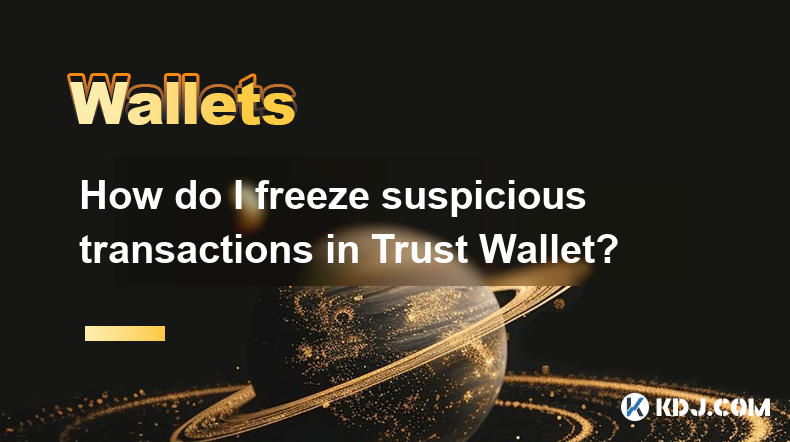
Trust Wallet, a popular mobile cryptocurrency wallet, doesn't offer a direct "freeze" function for suspicious transactions in the way a bank might. This is due to the decentralized nature of blockchain technology. Trust Wallet primarily acts as an interface to interact with various blockchains; it doesn't control the underlying networks. Therefore, you can't unilaterally halt a transaction already broadcast on the blockchain. However, several actions can mitigate risks associated with suspicious activity.
Understanding the Limitations of Freezing Transactions
The concept of "freezing" a transaction within a decentralized system like a blockchain is fundamentally different from freezing funds in a centralized system. In a centralized system, a central authority has control and can intervene. However, blockchains operate on a distributed ledger, meaning no single entity has complete control. Any attempt to unilaterally "freeze" a transaction would violate the core principles of decentralization and immutability.
This means that once a transaction is broadcast and confirmed on the blockchain, it cannot be reversed by Trust Wallet or any single entity. Instead, the focus shifts towards preventative measures and damage control after a suspicious transaction.
Steps to Take When Suspecting a Compromised Wallet
If you suspect a suspicious transaction originating from your Trust Wallet, the following steps can help limit potential damage:
Immediately change all your passwords: This includes your Trust Wallet password, exchange passwords, and any other passwords associated with your cryptocurrency accounts. Use strong, unique passwords for each account.
Revoke all connected applications: Check your Trust Wallet's connected dApps (decentralized applications) and revoke access to any you don't recognize or trust. This prevents unauthorized access to your funds.
Monitor your wallet activity closely: Regularly check your Trust Wallet for any further unauthorized transactions. Note the amounts, addresses, and timestamps of suspicious activity.
Report the incident: Contact Trust Wallet support immediately. While they can't freeze the transaction, they can provide guidance and potentially assist with investigations. Report the incident to the relevant cryptocurrency exchanges involved as well.
Consider contacting law enforcement: If you believe you've been a victim of a significant crime, such as a hack or theft, contact your local law enforcement authorities. They may be able to assist with investigations and potentially recover some funds.
Preventing Future Suspicious Transactions
Proactive measures are crucial in preventing future issues. Here are some best practices:
Enable two-factor authentication (2FA): This adds an extra layer of security, making it much harder for unauthorized individuals to access your wallet.
Use a strong and unique password: Avoid using easily guessable passwords. Consider using a password manager to generate and securely store complex passwords.
Only download Trust Wallet from official sources: Be cautious of phishing attempts and only download the app from the official website or reputable app stores.
Be wary of phishing scams: Never click on suspicious links or provide your seed phrase or private keys to anyone. Trust Wallet will never ask for this information.
Regularly update your Trust Wallet app: Updates often include security patches that protect against known vulnerabilities.
Use a hardware wallet for high-value assets: Hardware wallets offer an additional layer of security by storing your private keys offline.
Understanding Blockchain Immutability
A critical aspect to understand is the immutability of the blockchain. Once a transaction is confirmed, it's permanently recorded on the distributed ledger. This means that reversing or "freezing" a transaction directly within the blockchain is generally not possible. This is a fundamental characteristic of blockchain technology and is not specific to Trust Wallet. While you can't freeze a transaction, you can take steps to minimize further losses and report the incident to the relevant authorities.
Frequently Asked Questions
Q: Can Trust Wallet reverse a transaction?
A: No, Trust Wallet cannot reverse a confirmed transaction on the blockchain. The blockchain is immutable; once a transaction is confirmed, it cannot be undone.
Q: What should I do if I see an unauthorized transaction in my Trust Wallet?
A: Immediately change your passwords, revoke access to connected applications, monitor your wallet activity, report the incident to Trust Wallet support and relevant exchanges, and consider contacting law enforcement if the amount is significant.
Q: How can I protect myself from suspicious transactions?
A: Enable 2FA, use strong passwords, only download Trust Wallet from official sources, be wary of phishing scams, regularly update the app, and consider using a hardware wallet for high-value assets.
Q: Is my cryptocurrency safe in Trust Wallet?
A: Trust Wallet employs security measures, but the security of your cryptocurrency also depends on your own practices. Following security best practices, like using strong passwords and 2FA, significantly reduces the risk of unauthorized access. However, remember that no system is entirely impervious to sophisticated attacks.
Q: What if a suspicious transaction involves a large amount of cryptocurrency?
A: In cases of significant financial loss, immediately contact law enforcement. They can assist with investigations and may be able to offer assistance in recovering your funds. You should also thoroughly document all transactions and interactions with relevant parties.
Q: Can I freeze a transaction if I suspect fraud?
A: You cannot directly freeze a transaction within Trust Wallet or on the blockchain itself. However, you can take steps to mitigate further damage, such as changing passwords and reporting the incident to the appropriate authorities. The focus is on preventing further losses rather than reversing the transaction.
Disclaimer:info@kdj.com
The information provided is not trading advice. kdj.com does not assume any responsibility for any investments made based on the information provided in this article. Cryptocurrencies are highly volatile and it is highly recommended that you invest with caution after thorough research!
If you believe that the content used on this website infringes your copyright, please contact us immediately (info@kdj.com) and we will delete it promptly.
- Powell, Stablecoin Regulation, and Circle's Bold Move: A New York Minute on Crypto's Future
- 2025-07-02 02:30:12
- Ethereum Price, Tom Lee, and Bitcoin: A New Era for Crypto?
- 2025-07-02 02:30:12
- Hoskinson, Ripple, Cardano DeFi: A New Era of Collaboration?
- 2025-07-02 02:35:12
- BlockDAG, ALGO, and the Crypto Trends Shaping 2025
- 2025-07-02 01:50:12
- Cold Wallet, Token, Gains: Is CWT the Smartest Crypto Move?
- 2025-07-02 01:10:12
- Pi Coin's Rocky Ride: Support Levels, Recovery Timeline, and What the Experts Are Saying
- 2025-07-02 01:10:12
Related knowledge
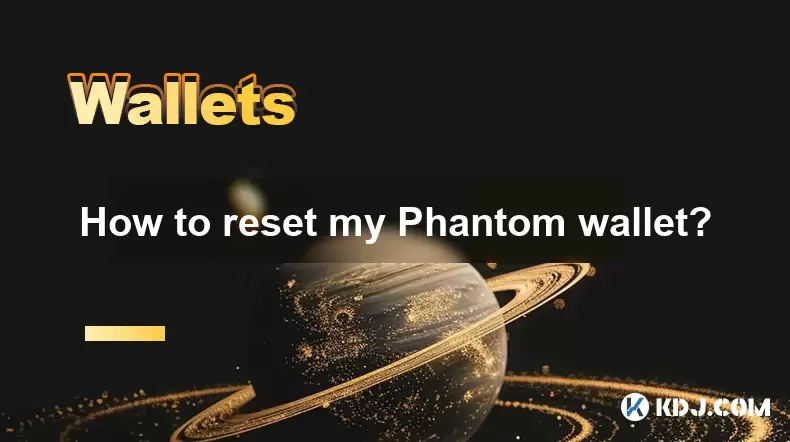
How to reset my Phantom wallet?
Jul 02,2025 at 12:36am
Understanding the Need for Resetting Your Phantom WalletIf you're using a Phantom wallet, you may encounter situations where resetting your wallet becomes necessary. This could be due to forgotten passwords, seed phrase issues, or account corruption. Phantom is a non-custodial wallet primarily used for interacting with the Solana blockchain, and it stor...
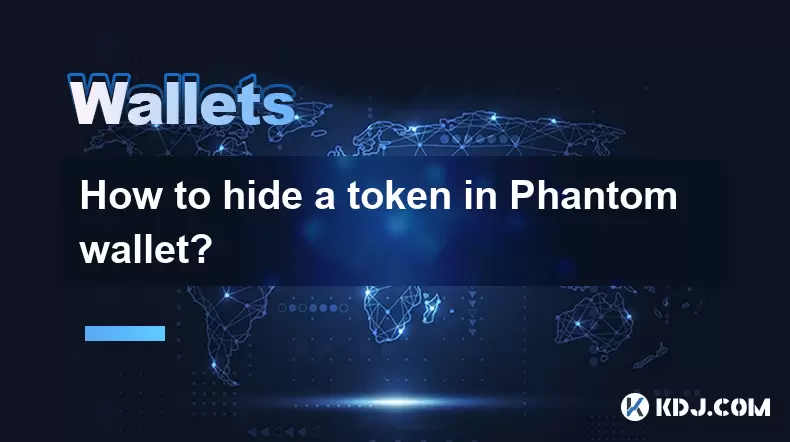
How to hide a token in Phantom wallet?
Jul 01,2025 at 05:49pm
Understanding the Phantom Wallet InterfacePhantom wallet is a popular non-custodial wallet used primarily for interacting with the Solana blockchain. It allows users to store, send, receive, and manage various tokens, including both fungible and non-fungible tokens (NFTs). Before attempting to hide a token, it's essential to understand how the wallet in...
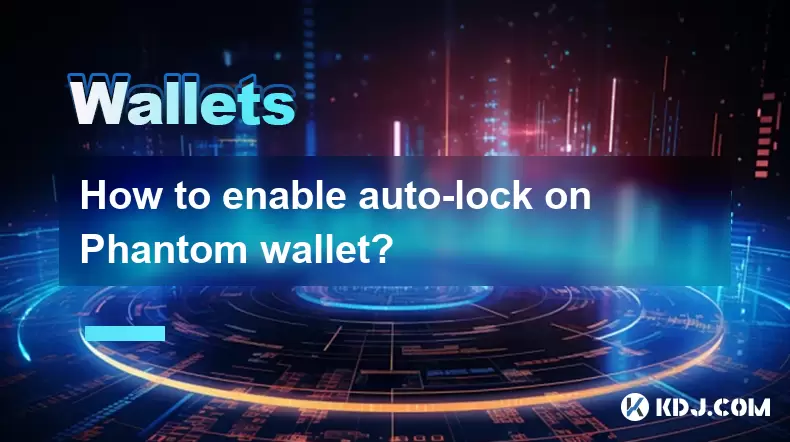
How to enable auto-lock on Phantom wallet?
Jul 01,2025 at 04:01pm
What is Auto-Lock in Phantom Wallet?Phantom wallet is a popular non-custodial cryptocurrency wallet used primarily for interacting with the Solana blockchain. One of its security features includes the ability to set an auto-lock timer, which ensures that the wallet locks itself automatically after a period of inactivity. Auto-lock enhances security by p...
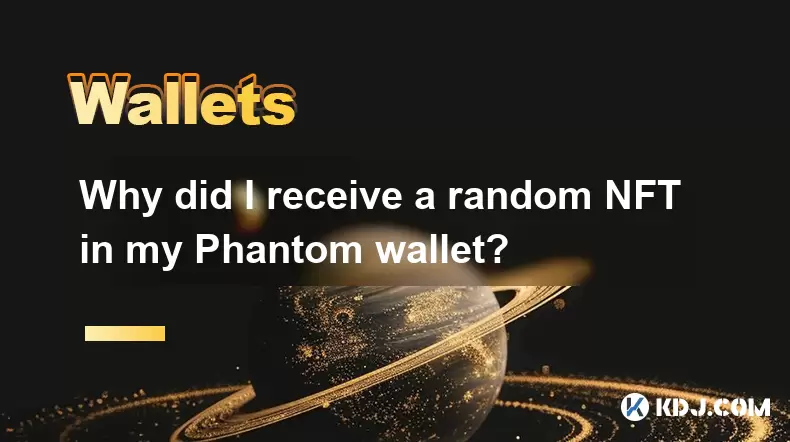
Why did I receive a random NFT in my Phantom wallet?
Jul 01,2025 at 09:00pm
Receiving an Unexpected NFT in Your Phantom WalletIf you've recently opened your Phantom wallet and noticed an unfamiliar NFT appearing in your collection, you're not alone. Many users have reported receiving random or unsolicited non-fungible tokens, often without any prior interaction with the project or sender. This phenomenon has become increasingly...
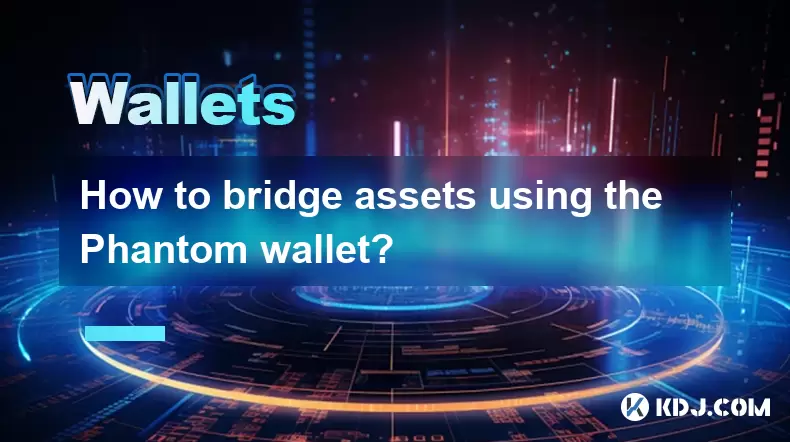
How to bridge assets using the Phantom wallet?
Jul 02,2025 at 02:50am
Understanding the Basics of Asset BridgingAsset bridging refers to the process of transferring digital assets from one blockchain network to another. This functionality is crucial in a multi-chain ecosystem where users may need to move tokens between different networks for various purposes, such as accessing decentralized applications (dApps), participa...
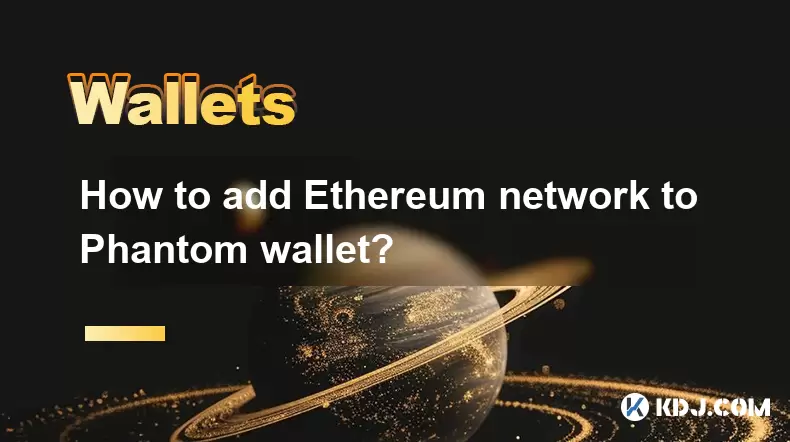
How to add Ethereum network to Phantom wallet?
Jul 02,2025 at 02:00am
Understanding Phantom Wallet and Ethereum CompatibilityPhantom wallet is a non-custodial wallet primarily designed for the Solana blockchain. It provides users with secure storage, sending, and receiving of Solana-based tokens and NFTs. However, many users wonder if they can integrate Ethereum-compatible networks into their Phantom wallet. While Phantom...

How to reset my Phantom wallet?
Jul 02,2025 at 12:36am
Understanding the Need for Resetting Your Phantom WalletIf you're using a Phantom wallet, you may encounter situations where resetting your wallet becomes necessary. This could be due to forgotten passwords, seed phrase issues, or account corruption. Phantom is a non-custodial wallet primarily used for interacting with the Solana blockchain, and it stor...

How to hide a token in Phantom wallet?
Jul 01,2025 at 05:49pm
Understanding the Phantom Wallet InterfacePhantom wallet is a popular non-custodial wallet used primarily for interacting with the Solana blockchain. It allows users to store, send, receive, and manage various tokens, including both fungible and non-fungible tokens (NFTs). Before attempting to hide a token, it's essential to understand how the wallet in...

How to enable auto-lock on Phantom wallet?
Jul 01,2025 at 04:01pm
What is Auto-Lock in Phantom Wallet?Phantom wallet is a popular non-custodial cryptocurrency wallet used primarily for interacting with the Solana blockchain. One of its security features includes the ability to set an auto-lock timer, which ensures that the wallet locks itself automatically after a period of inactivity. Auto-lock enhances security by p...

Why did I receive a random NFT in my Phantom wallet?
Jul 01,2025 at 09:00pm
Receiving an Unexpected NFT in Your Phantom WalletIf you've recently opened your Phantom wallet and noticed an unfamiliar NFT appearing in your collection, you're not alone. Many users have reported receiving random or unsolicited non-fungible tokens, often without any prior interaction with the project or sender. This phenomenon has become increasingly...

How to bridge assets using the Phantom wallet?
Jul 02,2025 at 02:50am
Understanding the Basics of Asset BridgingAsset bridging refers to the process of transferring digital assets from one blockchain network to another. This functionality is crucial in a multi-chain ecosystem where users may need to move tokens between different networks for various purposes, such as accessing decentralized applications (dApps), participa...

How to add Ethereum network to Phantom wallet?
Jul 02,2025 at 02:00am
Understanding Phantom Wallet and Ethereum CompatibilityPhantom wallet is a non-custodial wallet primarily designed for the Solana blockchain. It provides users with secure storage, sending, and receiving of Solana-based tokens and NFTs. However, many users wonder if they can integrate Ethereum-compatible networks into their Phantom wallet. While Phantom...
See all articles

























































































